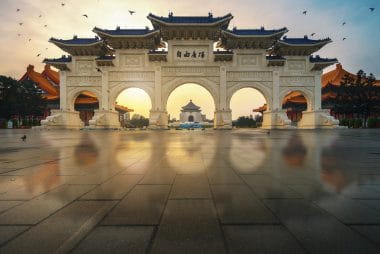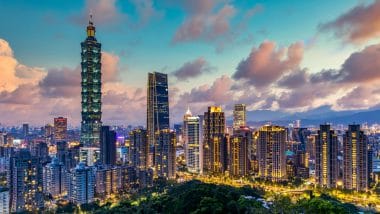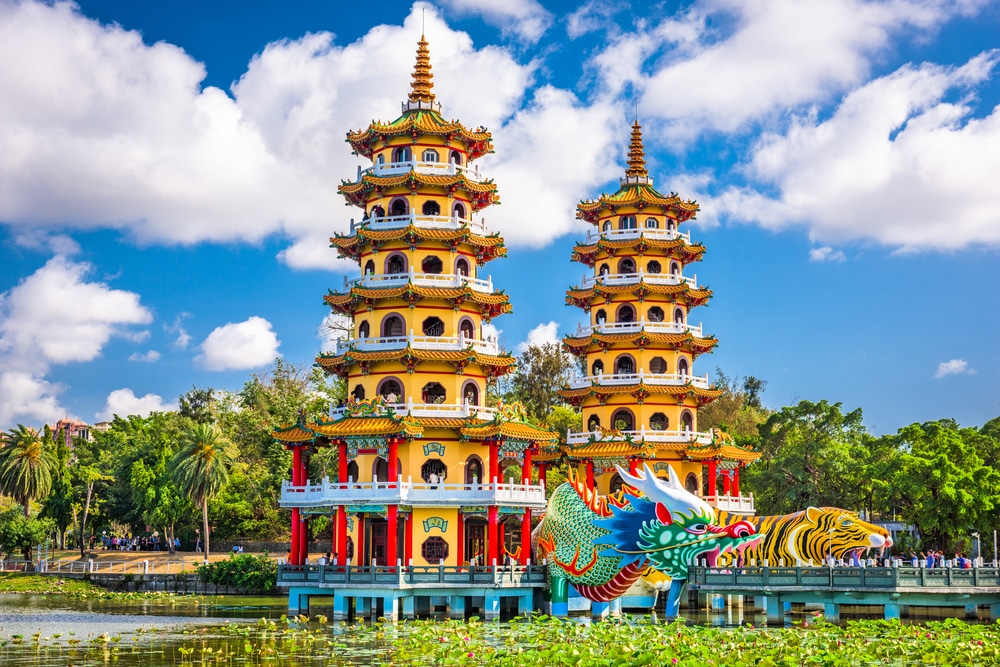Only very few travelers have the small island of Taiwan in mind when looking at the Pacific region. Located south of China and of course historically closely linked to the world power, the island not only offers its very own attitude to life, but a mixture of modern civilization and beautiful nature. With the capital Taipei, a clear highlight is already given, in which you can sink into whole hours. But the island has more to offer than the technically highly developed capital with its pulsating life. Above all, the people, the culture and last but not least the food invite you to an intensive visit to the island.
Taiwan – between technology and tradition

Most tourists will have their first contact with Taiwan in Taipei, and there’s no question that the city can easily overwhelm. When Taipei 101 rises in the distance – one of the tallest buildings in the world – and you travel through the city with the excellently developed local transport, you already get an impression of the hectic life in the city. Taiwan is proud of its technical progress and in fact, the city is strongly reminiscent of Tokyo or Hong Kong with its advanced digitalization, neon signs and hectic pace. Apart from the record-breaking skyscraper, the city differs above all in that real skyscrapers are a rarity here.
Apart from the technical development, the connection with tradition in the city is something that stands out at first glance. The megacity has managed to stylishly integrate the temple complexes – such as the Longshan Temple – into the growing metropolis. Countless green spaces and, last but not least, an impressive harbour add further charms to the cityscape. By the way, you don’t have to move through Taipei by train. It is above all the bicycle, which can also be rented cheaply here, that is the preferred option for getting around the city.
Especially at night, a different picture of Taipei emerges. The night markets attract not only tourists, but also locals with great food, and the bars and restaurants in the city usually fill up around the end of the day at the latest. This is where the internationalization of Taiwan meets tradition and this can also be found in the excellent food that is offered all over the city. All in all, you need a few days for the capital alone to get an overview of all the possibilities.
National parks and impressive landscapes

What is almost forgotten next to the two major cities of the island is the fact that there is an impressive landscape on the island that is as diverse as Taiwan itself. Most of these areas are state national parks with a fixed entrance fee. However, this is almost always worthwhile and you can tell that the money is used to protect the park and expand it for visitors.
Taroko National Park is certainly the park that is visited by most visitors. It is located about two hours north of Taipei and is particularly convincing with its many hiking trails, the impressive gorges and the many small hiking trails. Here you can discover a lot of Taiwan’s pristine nature and the diversity that has shaped this island for centuries. The Alishan National Scenic Area with its mountain and changing landscape is also proof that Taiwan has more to offer than high civilization in cities. When visiting these parks, you quickly forget the hustle and bustle of the cities, but almost feel like you’re on a deserted island. It also helps that the national parks are so extensive that you rarely meet another visitor when visiting on your own.
If you want to see more of the original Taiwan, you should also plan a visit to the city of Tainan. Unlike the capital, this has not developed into a hotspot for tourists and the economy, but has remained almost traditional. The streetscape is adorned with temples and religious sights. Some historic buildings can also still be found here, which date back to a time when the role with neighboring China was completely different. Tainan is considered the cultural heart of the island and perhaps tells a little more about Taiwan than Taipei could.
The country, the food and the people
While Taiwanese cuisine has strong ties to Chinese cuisine, it is mainly seafood and vegetables that play an important role. As in almost all Asian cuisines, rice and noodles play an important role – spiciness can also be found in many classic dishes of Taiwan. If you like it traditional, you should definitely go to one of the night markets in the cities, because this is where you can find authentic cuisine.
Culturally, Taiwan is rather conservative and has a clear code of conduct, especially for behavior in public. So it can make sense if you decide to take a look at the customs of the trip. Especially in Taipei, however, the audience is so internationalized that you feel like in various other metropolises in Asia, which have mainly adapted to Western visitors.


